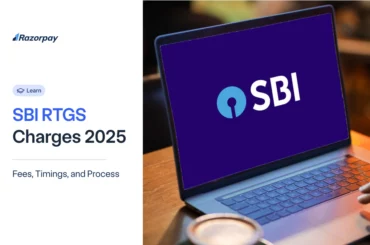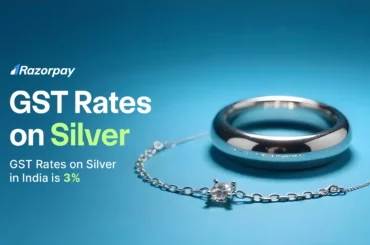Maintaining a patent requires paying patent renewal fees in India annually. These fees are crucial for keeping your patent rights in force and protecting your intellectual property. It is essential for patent holders to understand the fee schedule and rules to ensure their patents remain valid.
Table of Contents
What Are the Patent Renewal Fees in India?
Schedule for Patent Renewal Fees in India
1. If Filed Electronically
For Patent Year |
Natural Person Renewal Fee (₹) |
Standard Renewal Fee (₹) |
|
3-6 |
800 |
4,000 |
|
7-10 |
2,400 |
12,000 |
|
11-15 |
4,800 |
24,000 |
|
16-20 |
8,000 |
40,000 |
2. If Filed Physically
For Patent Year |
Natural Person Renewal Fee (₹) |
Standard Renewal Fee (₹) |
|
3-6 |
880 / 2,200 |
4,400 |
|
7-10 |
2,640 / 6,600 |
13,200 |
|
11-15 |
5,280 / 13,200 |
26,400 |
|
16-20 |
8,800 / 22,000 |
44,000 |
It’s important to note that electronic filing offers a 10% discount compared to physical filing. Additionally, individuals and small entities benefit from significantly reduced fees.
Related Read: Types Of Patents Application In India
Rules for Patent Renewal in India
1. Renewal Years
Patent maintenance fees become due starting from the 3rd year after the patent’s filing date. The first renewal fees must be paid on the 2nd anniversary of the filing date to cover the upcoming 3rd year. Subsequent fees are paid annually, corresponding to the patent year.
2. Renewal Dates and Payment Windows
The renewal of a patent in India must be done by the anniversary of the patent’s filing date each year. While early payments are allowed, late payments within a 6-month grace period incur additional fees.
3. Types of Entity
Under Indian patent laws in India, there are three types of entities:
- Natural Person: Individuals who receive the largest fee discount.
- Small Entity: Companies meeting investment criteria under the Micro and SME Development Act 2006.
- Standard: All other companies that pay standard renewal fees.
Proof of entity status and Form 28 must be submitted to claim fee discounts.
4. Electronic Filing
Electronic filing is the standard method for paying patent renewal fees in India. An additional 10% fee applies for any physical or non-electronic transactions.
5. Late Payment and Grace Period
A 6-month grace period is allowed after the due date to make the renewal payment and prevent the patent from lapsing. Additional late fees are charged, which increase each month and depend on the entity type and filing method. Typically, late fees range from ₹480 to ₹2,640 per month.
6. Restoration of Lapsed Patents
Lapsed patents can be restored if the failure to pay the renewal fee was unintentional. However, intentional non-payment leading to lapse is not eligible for restoration and results in permanent loss of patent rights.
7. Patent Renewal Fees by Country
Here’s a comparison of patent renewal fees in India with those in other major countries:
USA
In the USA, patent renewal fees follow a schedule where payments are made at 3.5, 7.5, and 11.5 years after the patent grant. The fees vary significantly based on the entity type.
Fees: Ranging from $400 to $7,400.
Unlike India, where renewal fees start from the 3rd year and are paid annually, the USA has a less frequent payment schedule with larger fee increments at specific intervals.
UK
In the UK, renewal fees are due annually starting from the 5th year after the patent grant. The fee structure is as follows:
Fees: Ranging from £70 to £610 per year.
The UK has a later start for fee payments compared to India, which begins in the 3rd year. Additionally, there are no grace periods for late payments.
Australia
Australia requires annual renewal fees starting from the 4th year:
Fees: Ranging from AUD 300 to AUD 1,250 per year.
Similar to India, Australia mandates annual payments but starts one year later. Australia also has a straightforward fee structure without additional discounts for small entities.
China
In China, renewal fees are due annually starting from the 3rd year:
Fees: Ranging from CNY 900 to CNY 8,000 per year.
In comparison with India, both countries require payments starting from the 3rd year; however, China’s maximum fees can be significantly higher than those in India.
Japan
Japan’s patent renewal fees are payable annually from the 4th year:
Fees: Ranging from JPY 2,100 to JPY 81,200 per year.
Japan has a higher maximum fee compared to India and begins its payment schedule one year later.
France
In France, patent renewal fees are structured as follows:
Fees: Annual fees start from the 3rd year and range from approximately €38 to €1,000, depending on the duration since the grant.
France allows for a more gradual increase in fees compared to India’s structure and offers different payment tiers based on how long the patent has been in force.
Germany
Germany’s patent renewal fee structure is as follows:
Fees: Annual payments start from the 3rd year and range from approximately €70 to €2,000, increasing with each subsequent year.
Like India, Germany requires annual payments starting in the 3rd year; however, Germany’s fees can escalate more rapidly in later years.
Canada
In Canada, patent renewal fees must be paid annually starting from the 2nd anniversary of grant:
Fees: Ranging from approximately CAD 100 to CAD 1,500, depending on how long the patent has been active.
Canada’s system is similar to India’s in that it requires annual payments but differs in starting one year earlier.
Europe
For European patents under the European Patent Convention (EPC), renewal fees are due annually starting from the grant date:
Fees: Vary by country but generally range from €500 to €2,000 depending on jurisdiction.
Unlike India’s system which is uniform across all patents, European countries have varying fee structures and policies regarding grace periods and discounts for small entities.
South Korea
In South Korea, patent renewal fees are payable annually starting from the 3rd year:
Fees: Ranging from approximately KRW 100,000 to KRW 1 million, depending on how long the patent has been active.
Both countries, South Korea and India, require payments starting in the same timeframe; however, South Korea’s maximum fees can be higher than those in India.
Related Read: What Kinds Of Things Can Be Patented In India
Conclusion
It is very crucial to understand that failure to pay the renewal fee for a patent can result in the lapse of your patent and the loss of exclusive rights. To avoid such scenarios, it’s advisable to keep track of renewal dates and seek professional assistance from registered patent laws in India agents if needed.
By familiarizing yourself with the types of patents and the renewal process, you can make informed decisions about your intellectual property strategy. Whether you choose to Apply for a Trademark in India or Apply for a Patent in India, understanding the associated fee structures and requirements is essential.
Related Read: What is Letters Patent?
Frequently Asked Questions
1. How often does a patent need to be renewed?
Patent renewal fees in India are paid annually, starting from the 3rd year after the patent’s filing date.
2. When can I pay the renewal fee in India?
Renewal fees can be paid on or before the anniversary of the patent’s filing date each year. Early payments are allowed, but late payments within the 6-month grace period incur additional fees.
3. Can I renew a patent after I miss a renewal due date?
Yes, a 6-month grace period is provided to pay the renewal fee with additional late fees. If the fees are not paid within this grace period, the patent will lapse.
4. How long do patents last in India?
In India, patents are typically granted for a term of 20 years from the filing date, subject to the payment of annual renewal fees.
5. Can a patent be renewed after 20 years in India?
No, patents in India cannot be renewed after the 20-year term. Once the term expires, the invention enters the public domain.
6. Can I pay the patent renewal fees in India in installments?
No, patent renewal fees in India must be paid in full on or before the due date. Instalment payments are not allowed.
7. Can someone else renew my patent if it lapses?
If a patent lapses due to non-payment of renewal fees, only the patent holder or their authorised representative can apply for restoration within the prescribed time limit.
8. How can I verify that my patent has been renewed?
You can check the status of your patent renewal by visiting the official website of the Indian Patent Office and using the patent search facility.
9. Should I renew my patent or let it lapse?
The decision to renew a patent depends on various factors, such as the invention’s commercial value, renewal fees’ cost, and the potential for licensing or enforcing the patent rights.
10. Can I renew a patent that was filed under the Patent Cooperation Treaty (PCT)?
Yes, patents filed through the PCT route can be renewed in India by paying the applicable national phase renewal fees.
11. Do I need assistance from local representation to renew a patent in India?
While it is not mandatory, engaging a local patent attorney or agent can help ensure that renewal fees are paid accurately and on time, and can assist with any issues that may arise during the renewal process.


